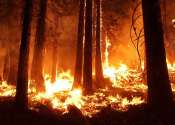Hold the ice: Research reveals behavior of antifreeze molecules
Chemists at New York University have discovered a family of anti-freeze molecules that prevent ice formation when water temperatures drop below 32 degrees Fahrenheit. Their findings, which are reported in the latest issue ...








